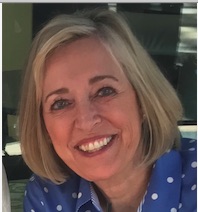Have You Dreamed of a Superpower?
How About Influencing without Authority?
Influence as a superpower? Why not? Who wouldn’t want the ability to shape opinions, drive decisions and contribute to reaching company goals? Influence is fundamental for leadership and is often identified as a competency goal of our coaching clients. Most of us need to influence team members, business partners, suppliers and customers. The good news is you don’t need a flashy costume to wield this power effectively.
Influence is not about manipulation or coercion. Effective influence is about inspiring others to willingly support your vision and goals. Besides, regardless of job title, there are limitations to positional power, and relying solely on authority leads to compliance more than commitment. In many organizations, employees work on project teams where they have no authority at all—yet they need help from others to achieve desired outcomes.
To develop your influencing effectiveness, here are a few key strategies to consider.
- Humans are emotional beings.
To influence behaviors and beliefs, consider how the brain works. While our neocortex has certainly advanced, we are wired to prioritize survival and safety, constantly evaluating incoming information to distinguish benefits from threats. This process helped our ancestors make split-second decisions in life-or-death situations.
Since emotions play a significant role in how we perceive and react to situations, often swaying our behavior in subtle and sometimes unconscious ways, understanding the emotional aspect is crucial. Influencing effectively means connecting with people’s hearts more than their minds. Help others see and feel the benefits rather than the threat of your proposal. The threat might be taking time away from other priorities, while the benefits might be learning something new, collaborating with smart, engaging colleagues, and/or gaining exposure to senior leadership.
- Our brains don’t like change.
The brain consumes 20% of our metabolic energy, even when resting our mind. When there is a change accompanied by new incoming information, the brain needs to expend extra energy to adapt to a new way of thinking. It prefers to align with information that agrees with existing beliefs. Therefore, when we try to influence someone to change their beliefs through facts and objective data alone, it doesn’t work. Our immediate reaction to information we don’t want to hear—whether related to politics or a doctor warning us of the dangers of not exercising, or negative feedback about ourselves—is to rationalize it away, discount it or ignore it all together. To tap into your influence superpower, focus on how your proposal connects to existing beliefs, reducing the energy required by the brain to make the change.
- Tune into WII-FM
WII-FM stands for “What’s In It For Me.” It’s a shorthand way of expressing the fundamental question that individuals often ask themselves when considering a decision, whether it’s purchasing a product, joining a program, or engaging with content: “How does this benefit me?” To enhance your influence, focus on the incentives and communicate the value proposition of your proposal from their perspective. Highlight the possibility of progress and build a genuine pathway of collaboration. You’ll inspire greater buy-in.
- Tailor your approach.
Communication is the vessel through which influence flows. To influence effectively you must know your audience. Some people prefer direct and concise communication, while others appreciate more detailed explanations. By being an astute observer of others’ preferences, you can gain valuable insights into their perspectives, needs and concerns. Listen actively and pay attention to their tone, body language and underlying emotions. By knowing your audience, you can tailor your style to match theirs, increasing the likelihood of your message being received positively.
- Be open to influence yourself.
When we’re open to influence, we show humility and an inclination to give others’ ideas a chance. We demonstrate a willingness to learn from others, consider different perspectives, and adapt our own beliefs and behaviors. By modeling openness, we invite others to respond accordingly. We foster collaboration, creativity and innovation, while building trust and accountability.
Becoming an influencing superhero is a journey of self-discovery, continuous learning, and intentional action. As you embark on your influence quest, remember these five actions:
- Frame your views positively to help others see and feel that they are moving toward a beneficial outcome rather than a threat.
- Present information in a way that aligns with others’ beliefs and resonates with them emotionally.
- Tune into ‘What’s in it for me’ and communicate the value proposition from the other’s perspective.
- Tailor your communication style to match the preferences of others, including words, tone, body language and emotions.
- Be open to different perspectives and embrace a learning mindset. It enriches your personal and professional growth and enhances your ability to positively influence others.
Enjoy THIS FREE DOWNLOAD for an on-the-go reminder on how to use your influence as a superpower.
Above all, remember that true influence is not about authority but about inspiring others to be their best selves. To learn more about how Innolect coaches and consultants can partner with you to enhance your influencing skills, contact:

Nancy Haller, an Innolect Executive Coach, brings over 25 years of diverse experience as a psychologist to her coaching with individuals, teams and organizations. With a comprehensive understanding of human behavior, she helps leaders to integrate organizational knowledge and systems perspectives to impact business results. Her clients have included individuals, teams and organizations from an extensive variety of industries, functions and countries. She has worked with Directors to C-Suite executives in many of the Fortune 100 companies. Dr. Haller served as a Commissioned Officer in the United States Navy, and she has held a variety of roles at the Center for Creative Leadership (CCL). Nancy is a California Licensed Psychologist and Board-Certified Coach.
